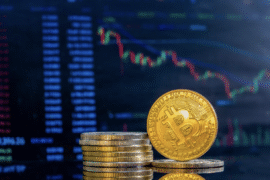This article may contain references to products or services from one or more of our advertisers or partners. We may receive compensation when you click on links to those products or services. Nonetheless, our opinions are our own.
Over the years, poker online has rapidly evolved into one of the most popular forms of entertainment. The way we play and enjoy the game has been completely transformed by technology and industry advancements since the game’s humble beginnings in the 1990s. What, though, does the future of online poker hold? Are there new trends emerging that will once again change the game as we know it? The past, present, and potential future of online poker will all be examined in this essay. So, shuffle up and deal
The Origins and Early Days of Online Poker
The origins and early days of online poker were marked by innovation, growth, and a touch of luck. A new era of internet gambling began in the late 1990s when Planet Poker introduced the first real-money online poker platform. Players no longer had to travel to a physical casino to play poker; they could do it from the convenience of their homes. New sites like PokerStars and Full Tilt Poker have emerged as a result of the rising popularity of online poker, giving players access to more features and chances.
However, it was Chris Moneymaker’s 2003 World Series of Poker victory that truly revolutionized the game. Thanks to the “Moneymaker Effect,” online poker gained mainstream popularity, attracting millions of new players and changing the face of the industry forever. Online poker was no longer a novelty; it had become a widespread phenomenon.
Major Developments and Challenges in Online Poker History
Online poker has undergone major developments and faced numerous challenges over the years. The passage of the Unlawful Internet Gambling Enforcement Act (UIGEA) in 2006 presented one of the biggest hurdles. This rule significantly affected the American online poker market, making it more challenging for players to finance their accounts with deposits and withdrawals.
More recently, the events of Black Friday in 2011 led to a complete reshaping of the online poker landscape. The Department of Justice shut down major poker sites and seized player funds, leading to a loss of trust in the industry. However, the emergence of regulated online poker markets in various countries and states has brought renewed optimism to the world of online poker. Poker online is still a well-liked game for individuals all over the world, despite everything.
Innovations and Trends in Online Poker
Online poker continues to evolve with innovators and entrepreneurs seeking to make the game more accessible, faster, and technologically advanced. Poker players can now play on their smartphones and tablets thanks to a concept that has gained popularity in recent years: mobile poker. Online poker has undergone a significant transformation as a result of players’ accessibility at any time and from any place. More people are playing mobile poker thanks to the popularity of smartphone gaming, which has increased the game’s appeal. Another innovation that has attracted players in droves is the introduction of fast-fold poker variants, such as Zoom and Rush Poker.
These variants have transformed the game by significantly reducing waiting times between hands, which makes the game more fast-paced and exciting. Lastly, the incorporation of blockchain technology and cryptocurrency has the potential to further revolutionize online poker. While there are challenges, such as regulatory and security concerns, the benefits of such innovations could lead to fairer, more transparent play and better player experiences. Overall, these innovations and trends are changing the way people play poker online, making the game more accessible, faster, and technologically advanced.
The Future of Online Poker: What Lies Ahead
A few crucial areas are poised to have a significant influence on the future of the game as the world of online poker continues to develop. One of the most fascinating of these is the development of artificial intelligence (AI). From improved poker bots to new strategies developed by machine learning algorithms, the possibilities for AI to shake up the world of online poker are many. But it’s not just the robots that could transform the game. By enhancing player immersion, the adoption of VR and AR technology has the potential to profoundly revolutionize how players interact with online poker. And as regulated online poker markets continue to expand globally, there’s sure to be plenty of growth and innovation in the years to come.
Takeaway
The world of online poker has changed and advanced significantly during the last few decades. From basic virtual cardrooms to advanced software and cutting-edge platforms, the online poker landscape has truly come a long way. Despite challenges such as legal restrictions and cybersecurity threats, the online poker community has persevered and even thrived. To properly appreciate and profit from the breakthroughs that are yet to come, enthusiasts must stay educated and involved as the industry develops and grows.
Who can predict what the future of online poker will be? Perhaps it will be augmented reality poker games or even virtual reality tournaments. But one thing is certain: as the game develops, players will do likewise, adjusting to and conquering any obstacles that may arise. So what are you waiting for? At GGPoker, the biggest poker site in the world, start playing Texas Holdem right away!

Reviewed and edited by Albert Fang.
See a typo or want to suggest an edit/revision to the content? Use the contact us form to provide feedback.
At FangWallet, we value editorial integrity and open collaboration in curating quality content for readers to enjoy. Much appreciated for the assist.
Did you like our article and find it insightful? We encourage sharing the article link with family and friends to benefit as well - better yet, sharing on social media. Thank you for the support! 🍉
Article Title: Looking Back And Moving Forward: The Evolution Of Online Poker And What Lies Ahead
https://fangwallet.com/2023/07/21/looking-back-and-moving-forward-the-evolution-of-online-poker-and-what-lies-ahead/The FangWallet Promise
FangWallet is an editorially independent resource - founded on breaking down challenging financial concepts for anyone to understand since 2014. While we adhere to editorial integrity, note that this post may contain references to products from our partners.
The FangWallet promise is always to have your best interest in mind and be transparent and honest about the financial picture.
Become an Insider

Subscribe to get a free daily budget planner printable to help get your money on track!
Make passive money the right way. No spam.
Editorial Disclaimer: The editorial content on this page is not provided by any of the companies mentioned. The opinions expressed here are the author's alone.
The content of this website is for informational purposes only and does not represent investment advice, or an offer or solicitation to buy or sell any security, investment, or product. Investors are encouraged to do their own due diligence, and, if necessary, consult professional advising before making any investment decisions. Investing involves a high degree of risk, and financial losses may occur including the potential loss of principal.
Source Citation References:
+ Inspo











































